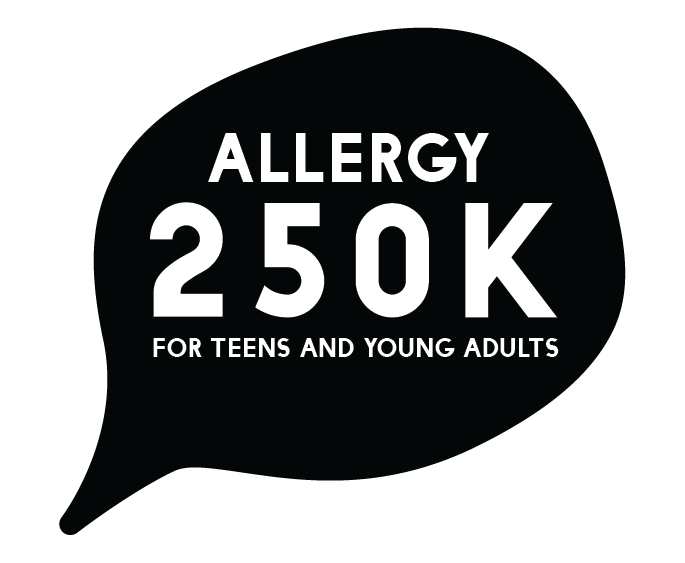Managing Your Parents
Listen Now
Top Tips
- Most parents worry that you are not taking your allergies seriously. Show them you do by ALWAYS carrying your EpiPen® or Anapen® and ASCIA Action Plan, reading food labels and by declaring your food allergy when eating out (even at a relative’s home!).
- Show them that you do not take unnecessary risks. This will help build trust.
- Tackle anxiety head on. If you or a family member needs help, talk to your GP (who may suggest a referral to a psychologist), allergist, patient support group or friends who understand.
- Create your own support systems. Friends and others who understand can discreetly have your back and know how to help you.
More about managing parents
Anxiety (being worried about things) is a normal part of life.
It is okay for your parents (and you) to feel this way when you’re living with severe allergy, particularly severe food allergy.
If anxiety is stopping you from enjoying normal everyday activities, perhaps you or your parents need a little help. Talk to your GP about a referral to a psychologist.
Why do parents worry?
As a teen or young adult, your parents will worry about you. They will worry about your food allergy, but they will also worry about things like you going out on your own, travelling independently or starting to drive. This is perfectly normal.
You can help your parents worry less by demonstrating that you are responsible with your allergies. Of course, some parents will still worry.
Worry levels vary for different people and families and is something you can negotiate individually at home, or with the help of a GP or counsellor.
Think of worry or anxiety as a spectrum from normal to increasing levels. A normal amount of worry can be very helpful with our day to day activities (such as remembering to take your adrenaline injectors).
However, problems occur when we worry so much that it stops us from being able to do normal day to day activities – such as socialising and eating out with friends.
If this is happening in your family, seek help from your GP, allergist or contact Allergy & Anaphylaxis Australia.
What can YOU do to reduce how much your parents worry?
Show your parents you understand the seriousness of your allergy by talking through how you are going to manage particular scenarios when you are out and by ALWAYS carrying your adrenaline injector ASCIA Action Plan. Be sure that you have the ASCIA Action Plan that matches the device you have been prescribed.
Parents worry more if you don’t show them that you are responsible in managing your allergy.
Create your own support systems. Your parents will worry less if they know you are hanging out with friends and others who understand and know how to recognise an allergic reaction.
Tackle anxiety head on. Don’t be afraid to talk to your parents. Some parents, no matter how responsible you are with your allergy, will still worry — impacting their life and yours.
If you think this is happening in your family, talk with them, or seek help from your GP, allergist or contact Allergy & Anaphylaxis Australia. A referral to a psychologist can help to manage anxiety that is impacting on your daily life.
Remember – even your parents need to learn!
Parents need to learn how to manage their anxiety and the following can help:
- Knowledge is power.
Tell your parents the steps you take to manage your allergies. This helps build trust. - Friendships are key.
Let your parents know which of your friends know about your allergies and how to use your adrenaline injector. - Have a support system.
Both you and your parents need a support system for when anxiety creeps in. Whether professional or friend, your support system may be different to your parents or you may seek help together. People manage anxiety differently. The important thing is that it is managed and does not stop you from enjoying life. - Tackle anxiety head on.
If your parents’ anxiety is causing a problem and you are being responsible with your allergy management, seek help
Need Help?
If you need help, contact the organisation below
Anaphylaxis Australia
- 1300 728 000
- This support line is not an emergency helpline. Please call 000 for ambulance in an emergency.
- Send an email
Kids Helpline
- 1300 728 000
- This support line is not an emergency helpline. Please call 000 for ambulance in an emergency.
- Visit the website
Lifeline
- 13 11 14
- This support line is not an emergency helpline. Please call 000 for ambulance in an emergency.
- Visit the website

